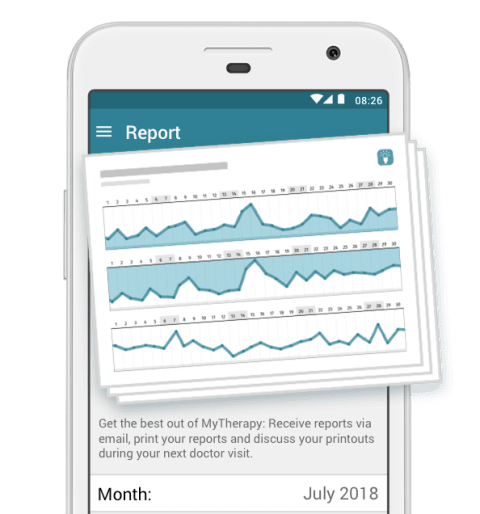Modern tech has made monitoring your heart rate easy. Heart rate trackers, which used to be the preserve of serious athletes, are now readily available on watches and devices aimed at the general public. Fitness aside, what can your heart rate tell you about your health? And can it really alert you to potentially life-threatening conditions?
The Self-Tracking Phenomenon
Self-tracking – the act of turning everyday life into tangible data – is a modern infatuation.
The number of steps you take, how many flights of stairs you climb, and the number of minutes of physical activity you perform are just a handful of the metrics available at our fingertips.
Attached to each of them there tends to be a nice, round number that is considered a good target for most healthy adults. 10,000 steps and 10 flights of stairs per day, along with 150 minutes of moderate-intensity (or 75 minutes of high-intensity) physical activity per week, for example, are often default goals.
Heart rate, however, is a little more enigmatic. Although it can be a very useful tool for exercising, does tracking your resting heart rate throughout the day tell you anything about your health?
What is a Healthy Heart Rate?
It is generally accepted that healthy adults should have a resting heart rate of between 60 and 100 beats per minute (bpm), with the lower end of the scale representing better cardiovascular fitness. Extremely fit people will often have a resting heart rate of around 40 bpm.
Having a device that monitors your heart rate is great for exercising, as heart rate ‘zones’ can be used to determine the intensity of a workout. Entire workout regimes based upon heart rate zones are becoming increasingly popular as heart rate monitors become standard features in fitness trackers and smartwatches.
However, fitness aside, what can heart rate trackers tells you about your overall health?
Other posts you may be interested in on the MyTherapy blog:
- Heart Rate Monitoring with Smartphones and Wearables: What You Need to Know
- Alcohol and Cholesterol: Can a Drink a Day Really Help Your Heart?
There are plenty of studies that have investigated this very question, including observational studies that have taken place over several years. The majority of studies have found that people with a resting heart rate towards the upper end of the 60-100 bpm bracket are more at risk of a cardiac problem than those at the lower end.
Below are a handful of them, should you wish to read them for yourself (if you start sifting through the references you can find dozens more):
- Elevated resting heart rate, physical fitness and all-cause mortality: a 16-year follow-up in the Copenhagen Male Study
- Resting heart rate: A modifiable prognostic indicator of cardiovascular risk and outcomes?
- Resting Heart Rate and the Risk of Heart Failure in Healthy Adults
- Temporal Changes in Resting Heart Rate and Deaths From Ischemic Heart Disease
- Resting Heart Rate is a Risk Factor for Cardiovascular and Noncardiovascular Mortality: The Chicago Heart Association Detection Project In Industry
While none of the studies claim an elevated resting heart rate is the direct cause of any health issues, it is widely considered to be a relatively consistent risk factor for cardiovascular disease and mortality in general. Although 60-100 bpm is still typically referred to as ‘normal’, many experts are now of the opinion that 60-80 bpm is significantly healthier.
An elevated resting heart rate, particularly over 80 bpm, has been associated with other cardiovascular risk factors, including higher blood pressure, body weight, and cholesterol. While you may weigh yourself regularly and have your blood pressure and cholesterol levels taken periodically, your heart rate is now the easiest of these metrics to track almost 24/7.
All things considered, it is easy to see how and why heart rate tracking is outgrowing its role as a pure fitness tool and becoming a way of learning about your overall health.
What About Other Conditions & Irregular Heart Rhythms?
Thanks to the rise of wearable tech, namely smartwatches and fitness trackers, your heart rate is one of the most accessible biological parameters. Given the evidence that heart rate holds some predictive capacity for heart failure and cardiovascular disease, these devices may hold the potential to alert people about health issues before symptoms appear.
This means treatment can be started earlier, helping prevent the risk of serious events such as heart attacks and strokes.
All of the studies and topics discussed above relate to people with a regular heartbeat and a heart rate within the 60-100 bpm bracket. However, there are plenty of other conditions that can affect heart rate that wearable devices may help detect.
Sinus Tachycardia
A resting heart rate above 100 bpm is considered a form of tachycardia (called sinus tachycardia) and may be caused by an underlying condition, such as anemia, hyperthyroidism, or COPD, or other issues such as viruses or a reaction to a medication.
In some cases, there are no other symptoms and people cannot feel that their heart rate has increased. In such cases, being alerted to the problem can be the first step towards a diagnosis and treatment.
Often, treatment for the underlying cause of sinus tachycardia helps bring your heart rate back down to normal levels.
Bradycardia
At the other end of the scale, a heart rate below 60 bpm is considered bradycardia. This is not unusual for athletes, whose resting heart rates are often around 40 bpm and can be even lower . It is also common for your heart rate to drop below 60 bpm overnight.
However, in some cases, bradycardia – particularly in elderly people or people with a history of heart conditions – it can be a sign of damage to heart tissue.
Bradycardia can also be a sign of an underlying condition, such as hypothyroidism, an inflammatory disease such as lupus, or a reaction to a medication.
Atrial Fibrillation
Arguably the biggest development regarding wearables detecting heart abnormalities came last year when Apple announced that two of its apps had received FDA approval as Class II medical devices. The apps help detect signs of a heart arrhythmia called atrial fibrillation (AFib), which causes your heart to beat irregularly. AFib is usually symptomless, but it increases your risk of having a stroke five-fold.
The apps can detect signs of AFib from heart rate data collected from the Apple Watch 4. What sets the Apple Watch apart from other smartwatches and fitness trackers is its ability to perform an electrocardiogram (ECG or EKG). It is done by placing your finger on the watch crown for 30 seconds.
This essentially makes it a one-lead EKG recorder. While this may not be as comprehensive as a medical-grade 12-lead EKG recorder, Apple’s data convinced the FDA that it was sufficient for detecting signs of AFib, which could then be investigated by a doctor.
You can read more about the Apple Watch 4 and AFib detection here:
Are There Downsides to Tracking Your Heart Rate?
Some physicians (such as one quoted in this article) have expressed concern that heart rate trackers can cause people undue stress regarding heart rate, worrying about perfectly normal spikes and drops.
Perhaps more of a concern is the possibility of false readings or indications that there is a problem when there isn’t. Although a heart rate of below 60 bpm could be a sign of a heart issue or thyroid disorder, for example, it is more likely to simply reflect a good level of fitness. Likewise, a low heart rate overnight is not unusual but may concern people.
False readings and unwarranted cause for concern could cause a spike in unnecessary visits to doctors and hospitals, exacerbating a time consuming and expensive problem that has long existed. On the flip side, physicians are concerned that some people may be overly-reliant on heart rate trackers and ignore symptoms that could be serious, such as chest pain, because their watch doesn’t identify a problem.
Nonetheless, there seems to be optimism that these devices can help identify warning signs of heart problems and other conditions, providing a net benefit to public health.
Tech companies – not least Apple – certainly seem to believe this is the case and are heavily investing in developing such devices, having taken the first steps into the world of medical devices and FDA approval.
The downsides that exist – while they cannot be ignored – are surely outweighed by the benefits that can, ultimately, be lifesaving.
Take a look at some of the other posts on the MyTherapy blog:



